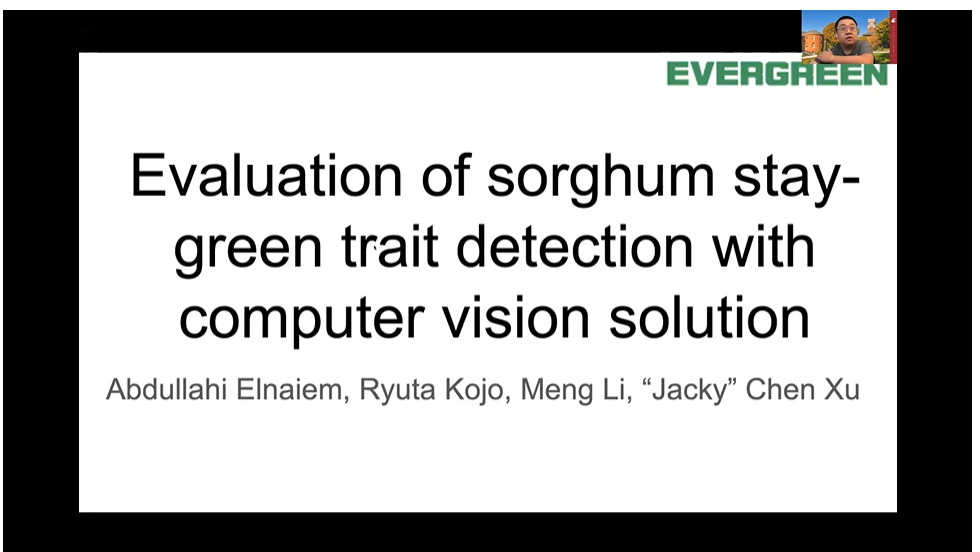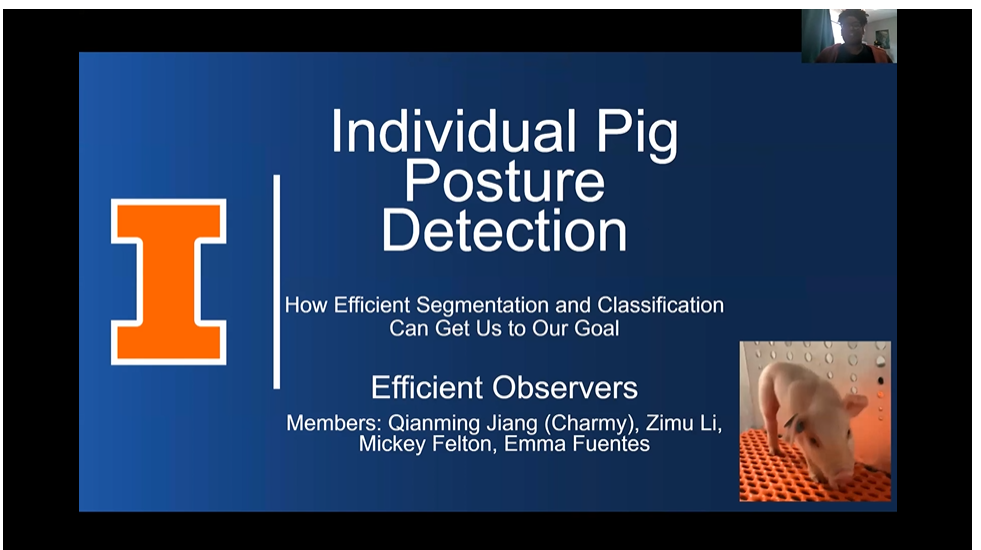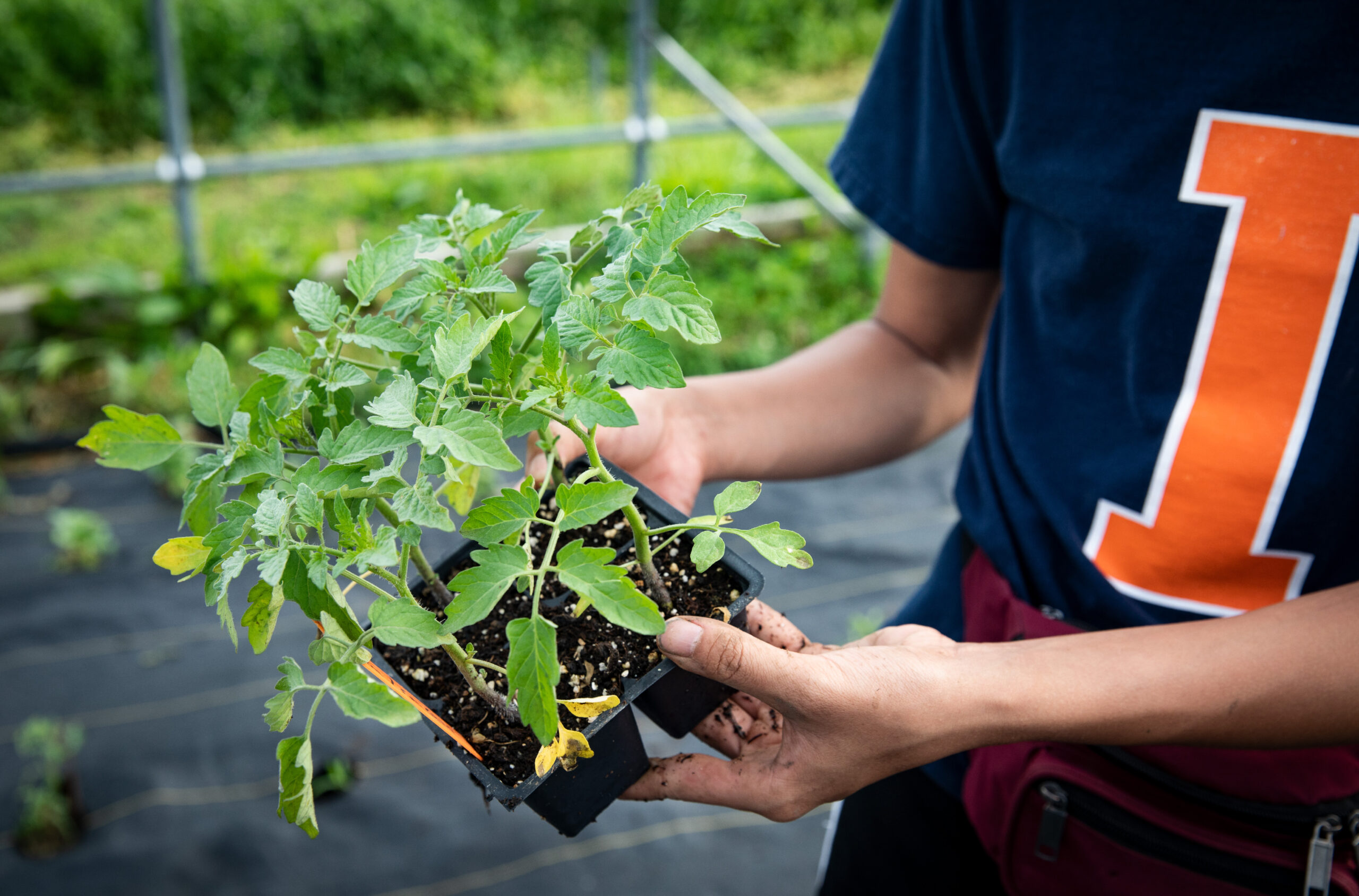This summer, the Center for Digital Agriculture, AIFARMS, and CROPPS co-hosted its 2nd annual AI Foundry for Ag Applications Short Course on June 12-17. This 4-day short course and hackathon is designed for graduate and REU students with limited experience in machine learning. The course offers lectures and virtual activities on AI and machine learning topics in agriculture applications. The program teaches skills applicable to many agricultural applications.
The morning sessions covered an introduction to computer vision, artificial intelligence, and machine learning. New this year, students could pick between livestock and crop tracks for the afternoon sessions focusing on applying these skills. The short course aims to help the participants engage in conversations and idea generation for AI applications and implement existing learning models in basic computer vision applications. The instructors for the short course were faculty members (Angela Green-Miller, Isabella Condotta, Matt Hudson, Amy Marshall-Colon, Steve Moose), research scientists (Megan Lang and Neveen Uppalapati), and PhD Candidates (Emmanuel Miguel and Alexandria Tran).
The short course is offered online to help reach a broader audience and make the program more accessible. Most of the participants identified as beginners in programming and AI/ML. This year we had 51 students participate in the program, with 21 representing 7 different HBCUs. The program also had international participation, with students from Universities in Japan, Ireland, Canada, and Brazil participating. The program also had 27 women participate.
During the last two days of the course, participants were tasked with developing a solution to a digital agriculture problem in an inspiring Hackathon. With the human population increasing, which results in an increased demand for high-quality animal protein and grains, the students were challenged to use computer vision to design a decision-support tool that helps improve the sustainability of our food system. The tool could help reduce mortality losses, reduce productivity losses, improve reproduction/breeding, or address another concern the students selected.
The teams were divided based on whether the students attended the crops or the livestock afternoon tracks. The students not only had to complete the programming portion of the challenge, but they also had to refine the problem within the food system they were trying to solve. The hackathon ended with team presentations and awards. Blake Giles and Bayer Crop Sciences sponsored $3,000 in award money for the 2023 AI Foundry Hackathon. 6 teams competed in the Hackathon: 3 from crops and 3 from livestock. Guest judges rated the team presentations based on technical merit (50%), context (40%), and presentation skills (10%).
The Winning Teams
Crops Track: Team Evergreen
Team Evergreen focused on evaluating sorghum stay-green trait detection by looking at the degree of yellowing in images of late-season sorghum. Their goal was to automate the field observation process to help reduce yield loss.


| Evergreen Team Members | Organizational Affiliation |
|---|---|
| Abdullahi Elnaiem | North Carolina A&T State University |
| “Jacky” Chen Xu | Washington State University |
| Meng Li | University of Illinois Urbana-Champaign |
| Ryuta Kojo | Chitose Institute of Science and Technology |
Livestock Track: Team Efficient Observers
Team Efficient Observers detected individual pig postures using image segmentation to reduce the man hours needed to watch videos to classify postures for research projects that use postures to measure emotional state, estrus, climate response, and illness.


| Efficient Observers Team Members | Organizational Affiliation |
|---|---|
| Qianming Jiang | University of Illinois at Urbana Champaign |
| Emma Fuentes | Texas A&M University |
| Mekali Felton | University of Illinois Urbana-Champaign |
| Zimu Li | University of Illinois Urbana Champaign |
Next year’s short course will be offered: June 10-15, 2024. For more details on the short course or to be notified when next year’s applications open, visit: https://digitalag.illinois.edu/short-course-and-hackathon/ or contact Christina Tucker at lyvers2@illinois.edu.

